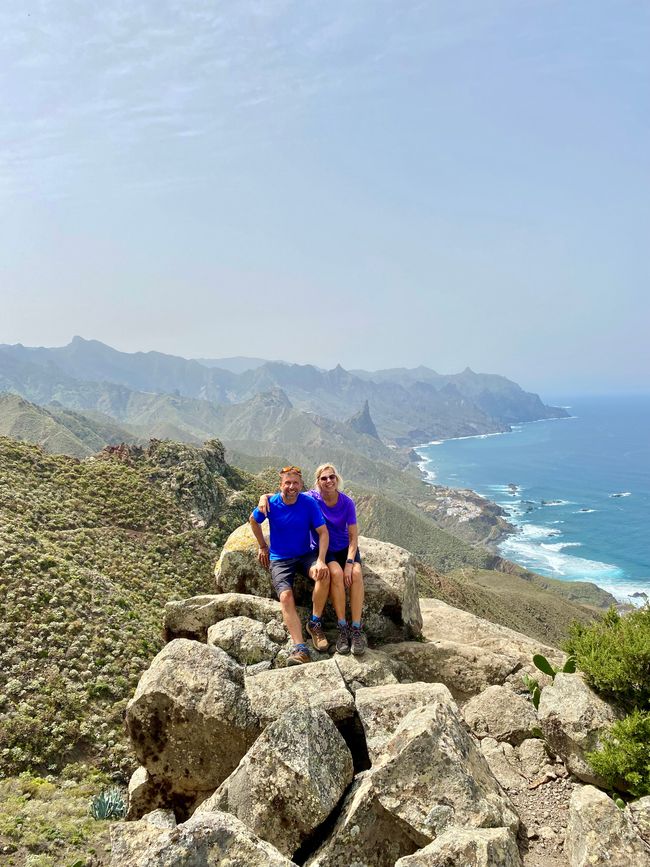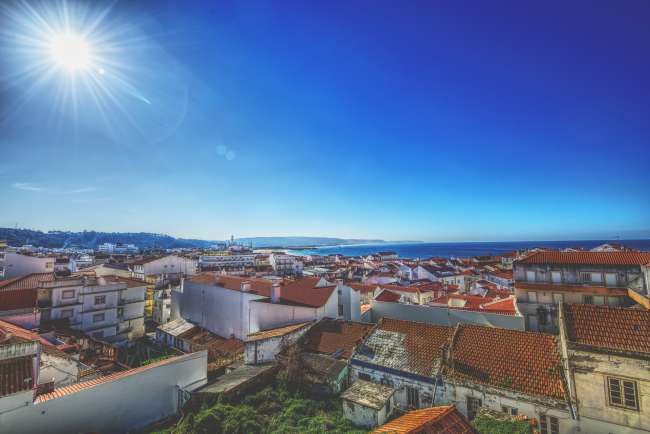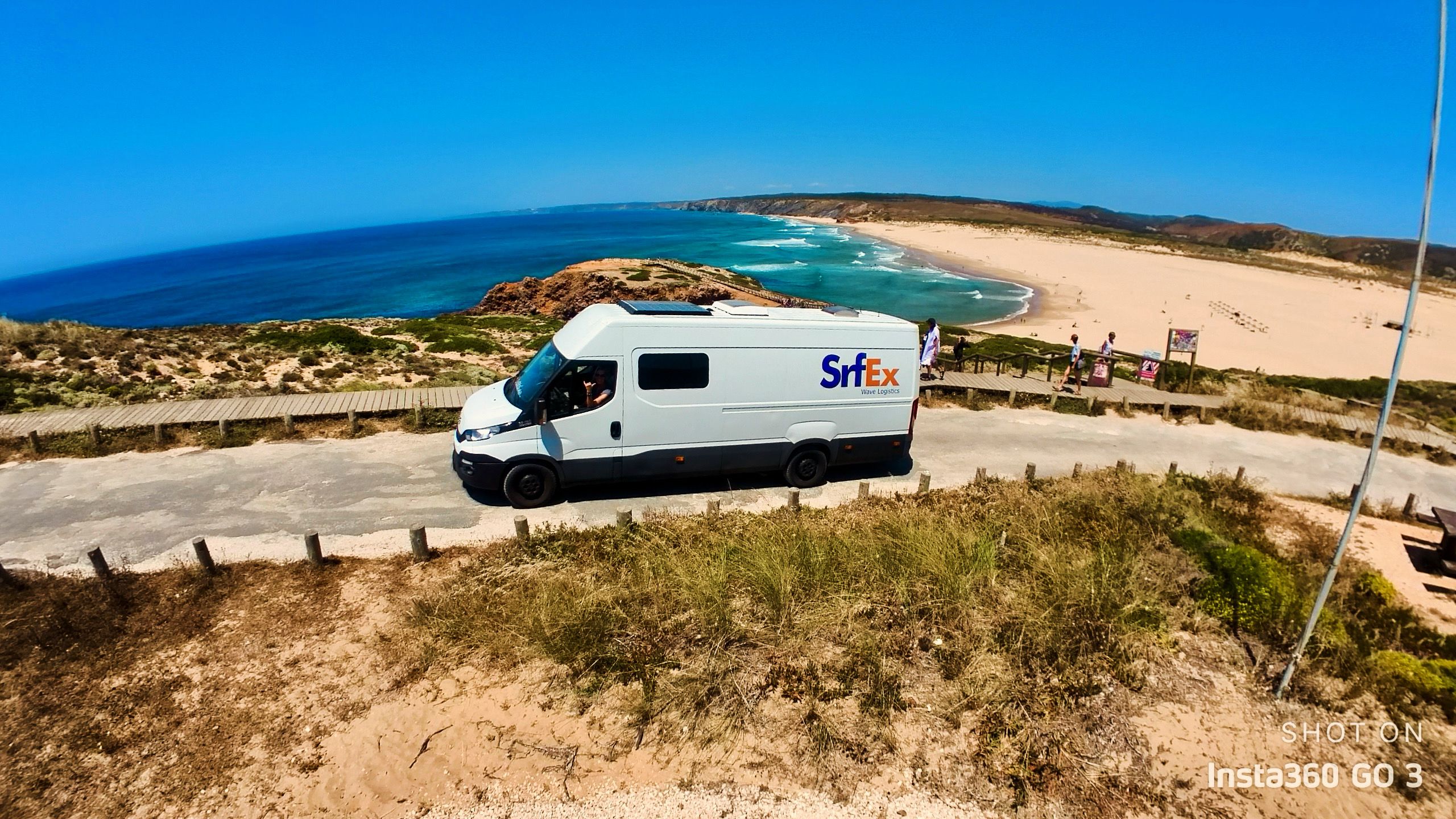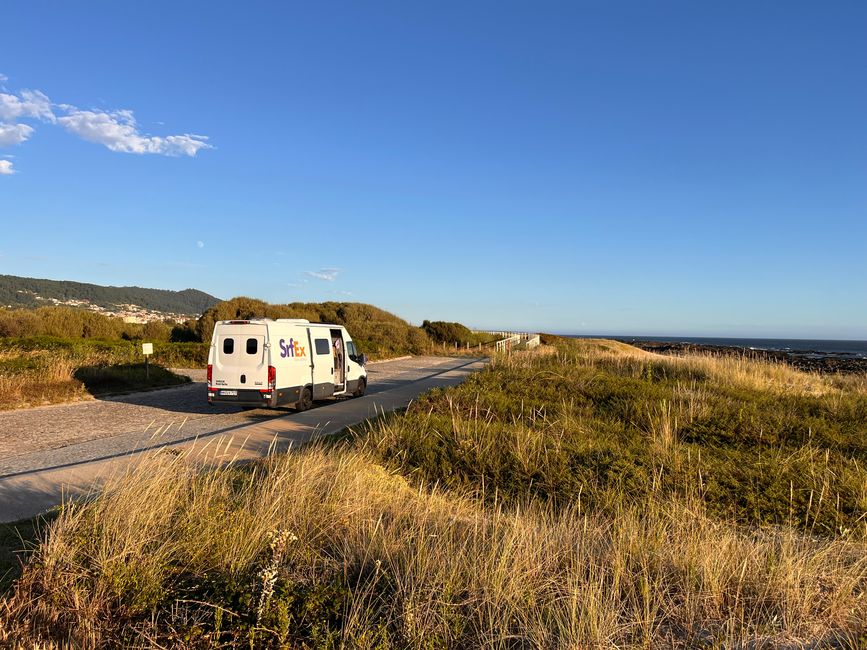travelmisssanny
Das können wir alles so bestätigen. Beachtet man dein Fazit, hat man in ganz Europa keine Probleme mit dem Freistehen. 
Coastal Nomads - Suzi, John & Betty
vakantio.de/coastal-nomads-suzi-john
Special Vanlife Portugal: Two Months of Boondocking and Wild Camping
E phatlaladitšwe: 06.08.2024
Ingwadiše go Lengwalo la Ditaba
Dear blog readers, here is a special feature for all those interested in the topic of boondocking and wild camping with a motorhome or van in Portugal!
In mid-May 2024, we embarked on our Portugal road trip with great reservations, as according to the majority opinion on the internet, boondocking in Portugal has become nearly impossible since the pandemic and violations are allegedly punished with high fines. Now, two months and 2,000 km later, we can say from our own experience: BOONDOCKING & WILD CAMPING IN PORTUGAL IS STILL POSSIBLE WITHOUT PROBLEMS!
What is the current legal situation regarding boondocking in Portugal? After a temporary tightening due to the influx of motorhomes during the pandemic, overnight stays (without camping behavior) in motorhomes for a maximum period of 48 hours (*) are again allowed. This is reflected in the amendments to Articles 48 and 50-A of the Portuguese Road Traffic Regulations. Furthermore, wild camping in protected areas, in immediate coastal or beach proximity, and in nature reserves remains prohibited.
(*) We have not personally experienced or heard of the 48-hour rule being enforced in any way!
In our two months in Portugal, we had 'contact' with the police (the G.N.R.) only once on a beach in the Algarve. The G.N.R. asked us (relatively politely) to leave the beach parking lot by 9 PM. However, we intended to leave anyway, as overnight stays were prohibited by sign, and other campers in the area had already been warned by the G.N.R.
How did we behave while boondocking to avoid stress or even fines?
- We almost always avoided any 'camping behavior'! No chairs or tables outside. No cooking or grilling outside. No awning setup. When we went to sleep, our van usually looked like a parked car. This requires a certain level of discipline and can sometimes feel less 'cool', but it's the best recipe to avoid trouble with the police. Additionally, showing the full camping lifestyle right outside your door or at the local beach isn't exactly met with enthusiasm from the locals.
- We never leave trash behind; instead, we often try to leave the parking spot cleaner than we found it. To do this, we carry a small trash picker (Amazon, €10)
- We have - and apparently, this is not common - a (composting) toilet on board. There are affordable toilets for vans for around €50, which gives no reason to do your business outside the van. These leftovers, especially when accompanied by non-biodegradable paper towels, are one of the main reasons why 'we' have become so unpopular with locals.
- We generally did not stay overnight where it was explicitly prohibited by sign. There were almost always alternatives, and sometimes you just have to drive away from the dream beach for the night. This was especially a good tactic in the Algarve.
- In residential areas where it was clear that parking space was limited, we did not stay overnight.
Where was it most difficult to boondock in Portugal? Clearly in the Algarve, but even there, we could boondock almost every night except for two. In the inland areas and north of the Algarve, boondocking became increasingly easier!
Where did we park in Portugal? For example:
- On beach parking areas where it was not explicitly prohibited
- On larger parking lots in (mostly smaller to medium-sized) towns
- On vacant lots and parking areas at the edges of towns (e.g., in Alvor, Peniche, Sagres), where the municipality tolerates boondocking to a certain extent
- In a vineyard in the Douro Valley (vacant lot)
- On parking lots of ferry ports, like in Seixal
- on free motorhome parking spots (like in Mafra), offered by more and more municipalities
- In Lisbon on the former Expo site
- On parking lots of lighthouses (a so-called insider tip)
- on parking spots belonging to beach bars (free, but with a 'moral consumption obligation', which was always good!)
- so-called 'lost places', these often seem uninviting because there are construction ruins nearby, but you often find yourself quite alone. We did not have any negative experiences at 'lost places'
Disposal: The P4N app is very helpful here. Many municipalities in Portugal have now set up disposal and supply points. It is also very practical that many Intermarche supermarkets have a disposal and supply point. There are reserved parking spaces for motorhomes where you can sometimes also stay overnight (check beforehand!) and often very affordable gas stations.
Camping places and parking spots in Portugal:
In the two months in Portugal, we also occasionally stayed at a campsite or a paid parking spot. These are usually quite affordable (between €10 - 20). Here you can embrace the full camping experience, spread out, do laundry, etc., while also supporting the local economy!
The Park4Night app: Of course, also essential for us!! However, it is probably clear to everyone by now that P4N has led to many spots being 'burned' due to the resulting influx, as many behave like the proverbial lemmings with the P4N app. So caution with the ***** ratings! Often, it is better to make your own assessment on-site than to rely blindly on others' ratings. We often did well at spots with poor ratings because a) we are self-sufficient, b) apparently have different expectations and c) also have no problem standing somewhere alone. By the way, we learned that the police now also like to search on P4N to find wild campers… Google Maps is also very helpful for finding parking spots, e.g., to stay overnight at a sports field, in an industrial area (on weekends), or on a vacant lot of the municipality. One should be aware that all P4N spots have eventually been found by someone after more or less intense searching. You can also do this yourself.
Conclusion: The same applies to Portugal as in many other European countries. If you search for a parking spot for the night with common sense, do not massively violate prohibitions, behave responsibly, and do not set up a large camping lifestyle, you generally won't have a problem!
FEEL FREE TO ASK QUESTIONS IN THE COMMENTS!
Ingwadiše go Lengwalo la Ditaba
Karabo (2)
N
Genau das, würden sich alle so verhalten…Wir haben auch keine Probleme, dann wäre alles wieder einfacher. Die meisten „Camper“ benötigen einfach ihren Luxus und verstehen das richtige campen „einfach“ gar nicht mehr

Dipego tša maeto Portugal

